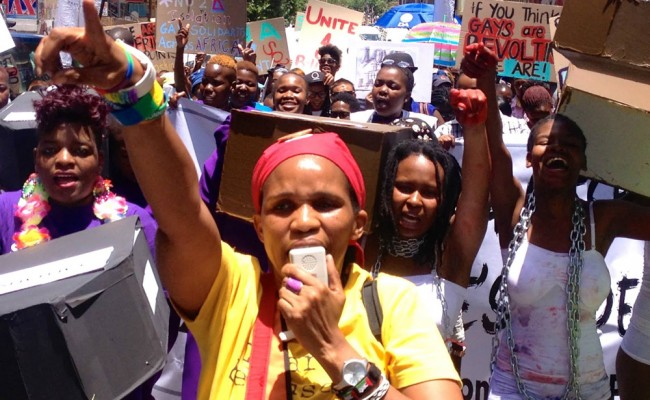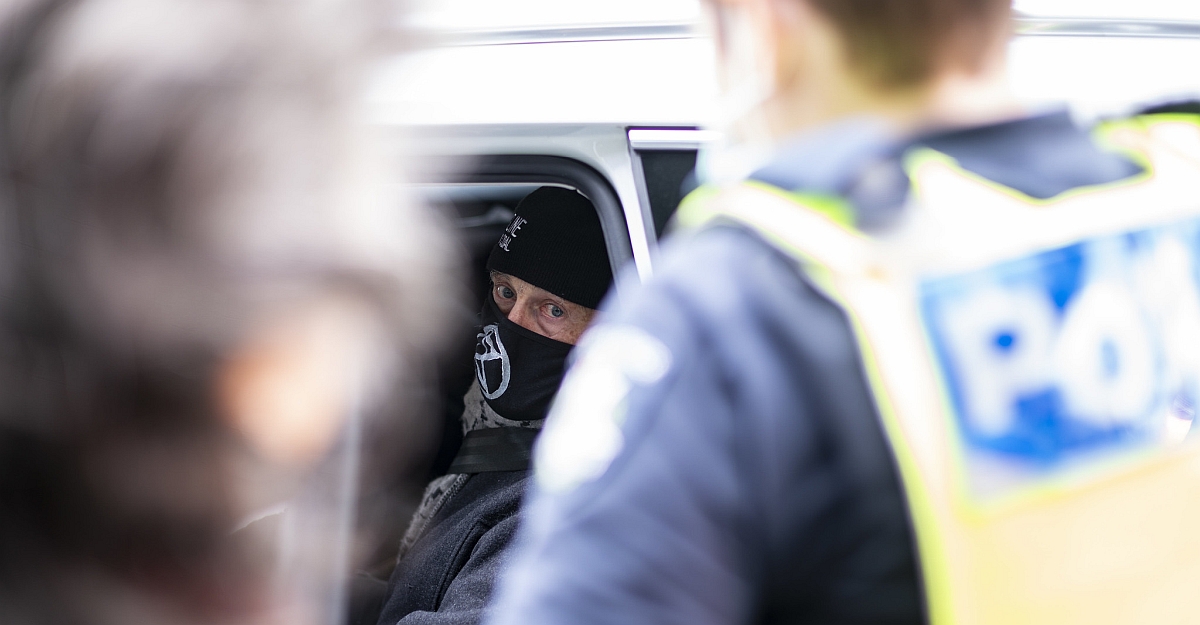I am sitting down to write this on Human Rights Day, a national holiday commemorating the 1960 Sharpeville massacre. It is a day that evokes memories of state violence and institutionalised racism, of the apartheid government’s determination to brutalise and dehumanise non-white South Africans, but it also points to more recent processes of nation-building and (as yet unrealised) healing. It is a significant day for many South Africans, in that it encourages people to think about the current state of rights in what is still a relatively new democracy. This year – in light of Peter Dutton’s announcement that Australia would consider fast-tracking ‘humanitarian’ visas for white South African farmers – the holiday has me thinking about the differences between Australia, my country of birth, and South Africa, my adopted home.
I have been thinking, for example, about the different ways in which the past is memorialised in the two countries and how this shapes broader attitudes towards human rights. Most South African public holidays pay tribute to the liberation struggle and the enormous sacrifices made during the decades-long fight for freedom; Australia, by contrast, obsessively cultivates a white-washed version of colonisation and glorifies the ‘mateship’ said to be at the heart of the ANZAC spirit. Australia is so determined to avoid confronting its colonial past and racist present that it even rebranded International Day for the Elimination of Racial Discrimination – a UN-observed commemoration of the Sharpeville massacre – as Harmony Day, in doing so replacing any serious discussions of racial inequality with a hollow celebration of multiculturalism.
Dutton’s endorsement of the ‘white genocide’ myth – a claim routinely debunked by academics, journalists and human rights bodies – saw swift international condemnation. Leading the charge were South African writers and activists – for example, Kaajal Ramjathan-Keogh and Sisonke Msimang – many of whom were quick to point out the racist undertones of Australia’s immigration policies and the country’s inhumane treatment of asylum seekers and First Nations peoples. I don’t want to rehash these valid critiques, but rather wish to share a few reflections on life in South Africa, from the perspective of an Australian.
When I woke to news reports of Dutton’s comments, I felt the deep shame and embarrassment that is so familiar to Australians living abroad. In the South African imagination, Australia is the racist state par excellence: a sanctuary for white South Africans fleeing the nightmare of black rule, a new home where they can play out colonial fantasies without all this talk of transformation or justice or restitution, a nation in which white privilege is rebranded as ‘hard work’ and a ‘fair go’.
As an Australian living in South Africa, I have come to expect a particular line of questioning: ‘Why did you move here? Don’t all white people want to go there? Is it because your family is from South Africa?’ Most of the time I half-joke that I am running away from the racists. The conversation inevitably turns to Australia’s shocking human rights record and the regular flight of white South Africans to the racist Promised Land. So many have emigrated since the transition to democracy in 1994 that saying someone should ‘move to Australia’ is shorthand for saying they are racist – so much so that comedians can drop a reference to Australia into a joke and every South African will know what is being implied. What often goes unsaid in these jokes is how generations of inherited wealth allow white South Africans to pack up their lives and move abroad. Of course, everyone here is aware of that reality – a few minutes in Johannesburg, Cape Town or Durban is enough to recognise the astonishing wealth disparity that remains twenty years after the end of white rule.
In the six years I have lived in South Africa, I have witnessed the best and worst of the country. In my professional life, I work with LGBTIQ+ migrants, refugees and asylum seekers and so I am regularly confronted by the social divisions that plague South Africa. I have witnessed the very real consequences of homophobia, transphobia and xenophobia, and am reminded daily of the ongoing struggle for basic service provision, safe housing and quality healthcare. At the same time, I am constantly energised by the strength of local social movements and the widespread commitment to social justice. Granted, this on-the-ground energy is not always shared by the state – recent years have seen a surge in government corruption, crackdowns on public protests and heartbreaking failures to protect vulnerable populations – but these structural issues should not be used as the sole measure of South Africa’s commitment to human rights. Unlike most Australians, South Africans have inherited a political vocabulary that allows them to articulate a vision of the world they want to create. On any given day I am as likely to have a conversation about redistributing capital, decolonising education or tackling gender-based violence as I am about the weather, the football or the latest gqom hit.
Just last week I attended a mass meeting for the Johannesburg People’s Pride (JPP) movement. Formed as a response to the commercialisation of LGBTIQ+ spaces, JPP embodies for me the spirit of political organising in South Africa. The movement is made up of a wide spectrum of people: queer and non-queer, workers and the unemployed, black and non-black, disabled and able-bodied, rich and poor. Through a range of activities – culminating in an annual march through downtown Johannesburg – JPP builds solidarity among social movements by bringing together LGBTIQ+ communities, anti-xenophobia activists, trade unionists, sex workers, student organisers and other radical folk. Sitting in last week’s meeting, I was reminded of all the things that keep me in South Africa, of the passion, energy and kindness that I witness each and every day. I have been very lucky in that I have been welcomed into a range of activist spaces – sometimes as active participant, sometimes as ally or observer – and in each of these spaces I have been inspired by the courage and strength of my comrades.
This is why Dutton’s comments made me so furious. Yes, South Africa is struggling with a range of social issues, including very high rates of violent crime, but the country is by no means the uncivilised wasteland proclaimed by Dutton. By refusing to situate South Africa’s problems within their social and historical context, Dutton and his ilk reinforce racist depictions of a country teetering on the edge of civil war. To speak of violence in South Africa without mentioning the neoliberal economic policies forced on the country during the transition to democracy, or the ongoing accumulation of capital in white hands, or the deep legacies of the Bantu education system, or the crumbling infrastructure inherited by the ANC government, is misguided at best and intentionally misleading at worse.
Dutton’s argument rests on two claims: first, that white farmers are being targeted by criminal gangs because of their race and, second, that their ‘rightfully owned’ lands are under increasing threat. Apparently, Dutton warns, South Africa is soon to be overwhelmed with a Zimbabwe-style campaign of land grabs. Anyone with the slightest interest in evidence will know just how flimsy this logic is. As noted above, the claim that white farmers are at increased risk of violence because of their race has been contested again and again and again. This is not to say that farm attacks have not happened or that these crimes are not horrific, but rather an attempt to show how the right uses this violence to bolster its political agenda. What right-wing commentators fail to mention is that the statistics they offer up include black farm owners and workers as well as other visitors to the property. They also rarely contextualise these numbers in relation to national crime statistics that show that young black South Africans living in high-risk areas are much more likely to be murdered.
Similarly, the claim that hordes of crazed blacks are about to storm white-owned farms, spurred on by warlord politicians, is a distortion of the very necessary conversation about land redistribution happening in South Africa right now. White South Africans – like their counterparts in other settler colonies – are terrified of history repeating. This is, after all, not the first or even second time that a South African government has legislated for land expropriation without compensation, though in the past the racial dynamics were reversed.
Anyone who thinks there can be meaningful justice without land redistribution is living a fantasy. This is true for all countries – Australia included – but is perhaps most starkly obvious here in South Africa. In many respects, little has changed since the end of apartheid: white folk still have high-paying jobs, still live in the leafy northern suburbs and still own most of the land. Yes, the black middle class has grown rapidly in recent years. And yes, racial segregation is no longer legislated. But these facts do not alter the reality that those living in poverty are overwhelmingly black.
It really doesn’t matter whether Dutton apologises or the Australian government abandons its plan. As Ramjathan-Keogh, Msimang and others have pointed out, this whole debacle is less about South Africa and more about Australia’s entrenched racism. There is so much that Australia can learn from South Africa, both in terms of confronting its past and building a better future. Reducing the similarities between the two countries to a love of barbecues and sport is to miss our real shared history – that of colonial dispossession – and limit opportunities to learn from each other’s experiences. I am thankful to live here and be exposed to new ways of thinking, connecting and mobilising. Most of all, I am grateful to be a part of the radical imaginings being enacted in South Africa as we speak. I just hope that others get to experience the South Africa that has captured my heart.
Image via the Johannesburg People’s Pride Movement






